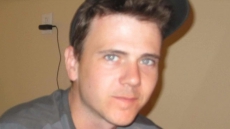VANCOUVER — A British Columbia man accused of using his Facebook account to express support of "lone wolf" terrorists in the name of the Islamic State of Iraq and the Levant says he was on social media to "shine a light" on atrocities in the Middle East.
Othman Hamdan testified in B.C. Supreme Court Wednesday that his posts highlighted government clashes against citizens during the Arab Spring that started in Tunisia in late 2010 and spread to Syria and elsewhere.
Hamdan, 36, told his trial that mainstream media did not initially report people's suffering, especially in Syria, where president Bashar Assad's forces "squashed" people trying to hold peaceful protests, resulting in a wave of refugees leaving the region.
Hamdan said he began posting comments on his Facebook profile and created some pages based initially on what he saw on social media, which played a big role in the series of demonstrations that swept through the Arab world.
The Fort St. John resident has pleaded not guilty to encouraging the commission of murder, assault and mischief as well as inducing and instructing someone to carry out a terrorist act.
Hamdan, who described himself as a non-practising Sunni Muslim, said his posts of political satire, poetry, including some he'd written himself, and parodies were used to "highlight the problem" through humour and exaggerated blunt statements that were innocuous.
"This is my struggle with Facebook. I'm the little guy on Facebook against multimillion-dollar media organizations, whether it's Saudi Arabian TV or CNN."
Hamdan said that when he noticed Facebook accounts using an Islamic insignia were being deleted, he launched a page using a pixilated form of the image to see what would happen, only to learn his page was suspended for three days for "graphic violence," followed by an indefinite suspension.
"I recognized that this was their attempt to direct the narrative, their way to suppress and give rise to secular speech," he said. "There's no graphic violence whatsoever in this."
Hamdan told the court he was inspired by a Palestinian cartoonist who was killed in London in 1987 and was known for criticizing Arab regimes and Israel and that he could relate because he's a Palestinian and a refugee to Canada who seeks to return to his homeland.
"I have no country, no homeland. It's my struggle. I'm a liberal in many ways."
The trial heard earlier that Hamdan posted "Lone wolves, we salute you," in March 2015, in reference to those who carry out terror attacks on their own.
The trial before Justice Bruce Butler also heard that Hamdan paid tribute to gains made by ISIL and attacks in Canada and other Western countries.
Hamdan testified the Islamic State fought back against Assad's forces and that prompted more social media commentary about the group that was included on his Facebook profile and pages.
"I view them as the equalizer, a force that's bringing the balance of power to the region," he said of issues between Sunni and Shiite Muslims.
Hamdan said he abandoned his Islamic religion after moving to the United States in 1999 and converted to Christianity before dropping that and returning to his former religion, though he doesn't agree with the "hypocrisy" of the clergy.
The court heard Hamdan left the United Arab Emirates on a student visa and attended a community college in Tucson, Ariz., where he studied electrical engineering.
He said he enjoyed the freedom of living in the United States, drank plenty of alcohol and regularly smoked marijuana as he lived the life of a Rastafarian and a drifter who was soul searching.
Hamdan told court he faced discrimination in the U.S. after the terrorist attacks in 2001 and that he eventually moved to Vancouver, where he sought refugee status.




